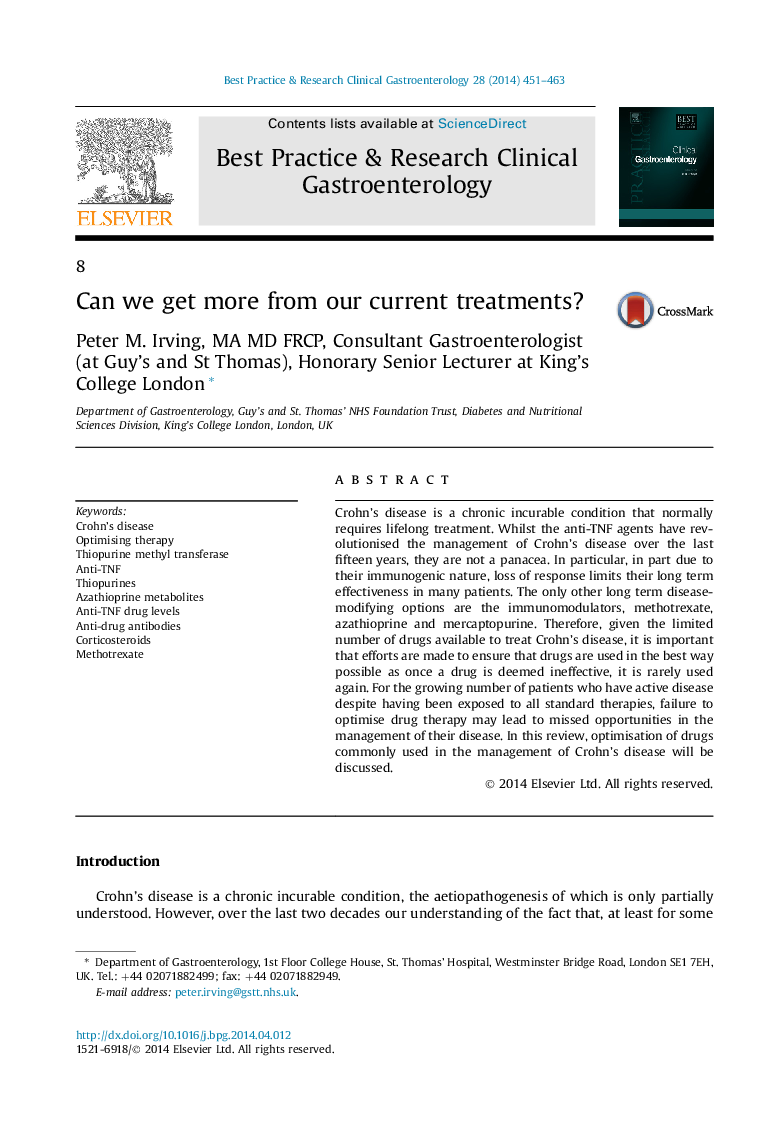| Article ID | Journal | Published Year | Pages | File Type |
|---|---|---|---|---|
| 6086354 | Best Practice & Research Clinical Gastroenterology | 2014 | 13 Pages |
Crohn's disease is a chronic incurable condition that normally requires lifelong treatment. Whilst the anti-TNF agents have revolutionised the management of Crohn's disease over the last fifteen years, they are not a panacea. In particular, in part due to their immunogenic nature, loss of response limits their long term effectiveness in many patients. The only other long term disease-modifying options are the immunomodulators, methotrexate, azathioprine and mercaptopurine. Therefore, given the limited number of drugs available to treat Crohn's disease, it is important that efforts are made to ensure that drugs are used in the best way possible as once a drug is deemed ineffective, it is rarely used again. For the growing number of patients who have active disease despite having been exposed to all standard therapies, failure to optimise drug therapy may lead to missed opportunities in the management of their disease. In this review, optimisation of drugs commonly used in the management of Crohn's disease will be discussed.
